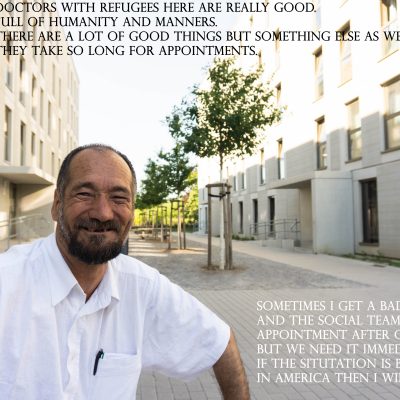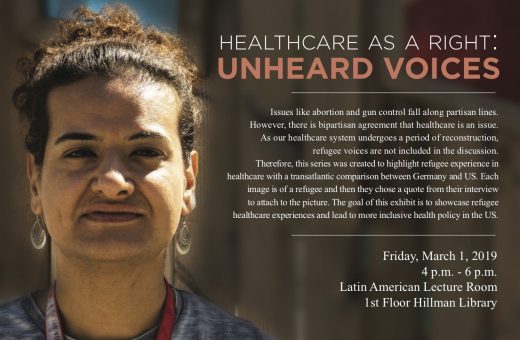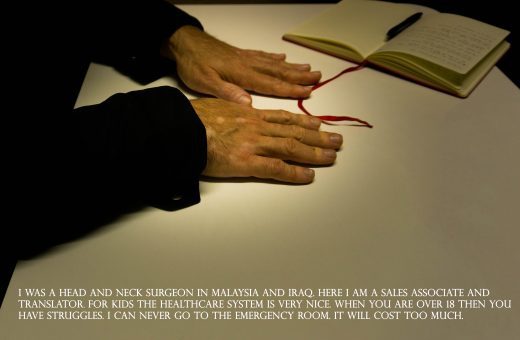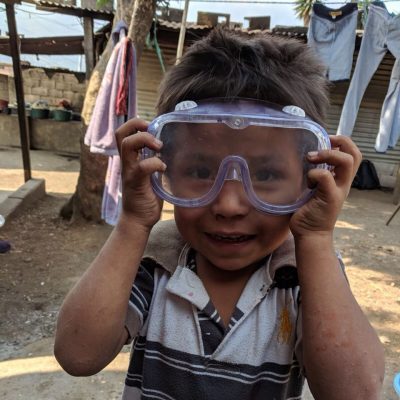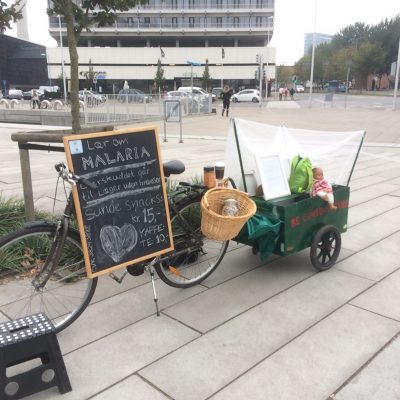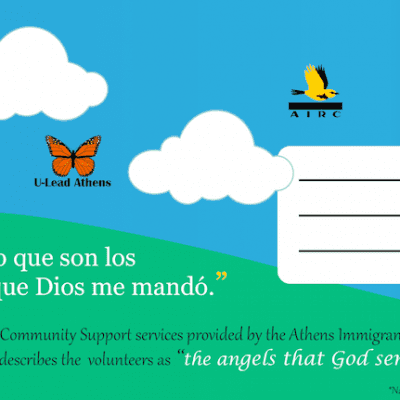Article
Demonstrating the transatlantic dimensions of the issue, the photography project by Humanity in Action Senior Fellow Aditya Mittal highlighted refugees’ experiences with healthcare in communities in Berlin, Germany and Pitttsburgh, Pennsylvania.
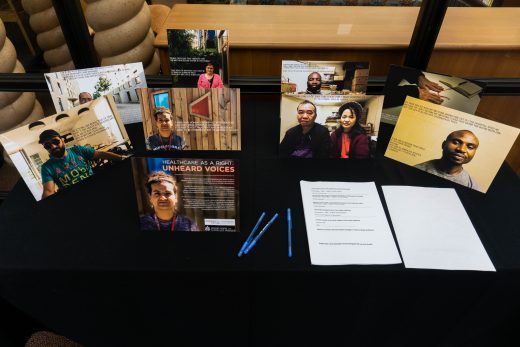
We often hear about how the healthcare system in the US is flawed. But which perspective is it flawed from?
Many arguments against the healthcare system in the United States come from the “average American citizen;” however, many people fail to realize that refugees and new immigrants experience additional burdens to equal health access on top of the problems that many others experience.
This photography project highlighted refugee voices regarding their healthcare experiences and was exhibited to people who may be unaware of refugee and immigrant issues in healthcare. Coming from an immigrant family himself, Aditya wanted to explore stories relating to refugee experiences with healthcare to compare and contrast between the immigrant and average American experience.
As a first step in the project, Aditya contacted a refugee camp in Berlin-Marzahn, Germany, created consent forms, found native Arabic and Farsi speakers to translate the forms, and then interviewed four Berliners with recent refugee experiences. He asked them to describe a significant healthcare experience.
Back in the United States, Aditya collaborated with the Jewish Family and Community Services, a refugee resettlement agency in Pittsburgh, and interviewed five refugees in Pittsburgh. As a result, Aditya organized a physical exhibition at the University of Pittsburgh where the images were shown to about 30 visitors.
When asked about one very memorable moment in the project, Aditya recalls:
“I became good friends with someone who worked at the refugee camp in Berlin named Ubaid. Despite meeting me only a few times, he always was willing to help me and even translate for me during my interviews. He was one of the biggest proponents of me completing the Berlin portion of the project within the limited time I had.”
Aditya plans on expanding the project to the next level by covering the perspectives from Nepali refugees, as well as Afro-Latinos in Pittsburgh. Most importantly, he is looking for an opportunity to publish the project in a magazine. He can send a draft of a two-page article and pitch to those interested.

